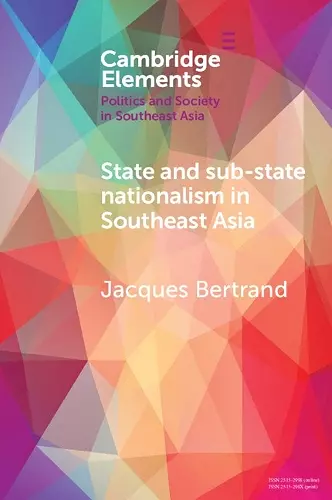State and Sub-State Nationalism in Southeast Asia
Format:Paperback
Publisher:Cambridge University Press
Published:9th Jan '25
Currently unavailable, and unfortunately no date known when it will be back
This paperback is available in another edition too:
- Hardback£49.99(9781009583060)

Sub-state nationalism is linked to lack of inclusion and authoritarian implementation of post-independence state nationalism.
This Element explores the cycle of sub-state nationalist mobilization in Southeast Asia due to insufficient inclusion and authoritarian state use. To reduce mobilization, the state changed policies to recognize group distinctiveness and accommodate regional/local territorial units, focusing on Indonesia, the Philippines, Thailand, and Myanmar.Nationalism is a political phenomenon with deep roots in Southeast Asia. Yet, state attempts to create homogenous nations met with resistance. This Element focuses on understanding the rise and subsequent ebbing of sub-state nationalist mobilization in response to state nationalism. Two factors allowed sub-state nationalist movements to be formed and persist: first, state nationalisms that were insufficiently inclusive; second, the state's use of authoritarian tools to implement its nationalist agenda. But Southeast Asian states were able to reduce sub-state nationalist mobilization when they changed their policies to meet two conditions: i) some degree of explicit recognition of the distinctiveness of groups; ii) institutional flexibility toward regional/local territorial units to accommodate a high degree of group self-governance. The Element focuses on four states in the region – namely Indonesia, the Philippines, Thailand, and Myanmar.
ISBN: 9781009583039
Dimensions: unknown
Weight: unknown
78 pages